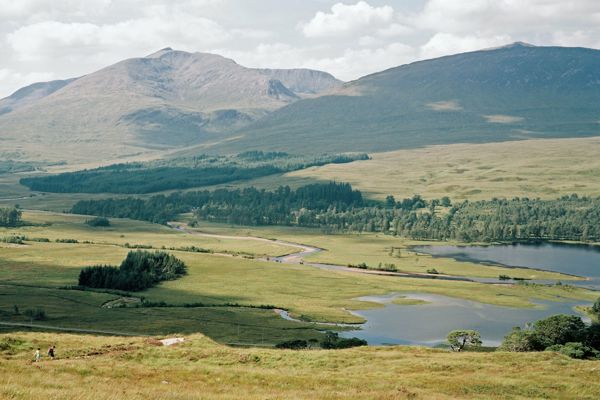Almost 20 years have passed and during that time we have seen the introduction of many unexpected additional recreational uses. For example, we now have access being taken for geocaching, electric bicycles (e-bikes), paddle boards and, I suspect, others that I am unaware of.
A great deal of care, time and effort went into the creation of SOAC in order that we have this "go to" point of reference for both access takers and land managers alike. Although not in itself legislation, the importance of SOAC’s guidance has been recognised in Court; it is mandatory to have regard to it when assessing whether actions have been responsible. Respecting other people’s interests, care for the environment and taking responsibility for our own actions are SOAC’s three key principles, but sometimes innovative uses, such as those mentioned above, require special consideration.
The lockdown resulting from the coronavirus pandemic has led to wider enjoyment of the outdoors. Such enjoyment is very beneficial to health and well-being and is certainly not to be condemned! However, this has brought with it additional pressures and, inevitably, the occasional conflict between landowners, land managers and recreational access users. These tensions have always existed but, as an example, irresponsible parking seemed to become a routine feature of (access to) access during lockdown. It is important to remember that access rights don’t extend to cars, but SOAC does helpfully give guidance about how to park responsibly and what landowners could do to alleviate problems.
Recently in The Press & Journal Malcolm Combe, author of The ScotWays Guide to the Law of Access to Land in Scotland debunked a variety of myths surrounding the right of responsible access (informally known as "the right to roam"). This served as a very useful reminder of the constant need for education and better promotion of SOAC.
Understanding SOAC is a fundamental requirement and articles such as Malcolm's are of great assistance. Sadly, there are misconceptions - and sometimes the interpretation of rights can be highly personalised. A community newsletter in the East Neuk of Fife near St Andrews recently ran a piece on what the community believes to be inappropriate wild camping close to the edge of a village. Rights require responsibility, and the negative impact on the local and wider environment of human waste and campfires shows a lack of respect and taking responsibility. Education must be the watchword or else, sadly, some areas will become badly affected. As a result, in some areas, special byelaws are sought to allow action against abuse, although it is not always clear that existing enforcement measures have been fully utilised. Byelaws are a last resort as they run the risk of restricting responsible recreational access because of the irresponsible actions of others.
Some people believe that SOAC needs to be re-written. There is no doubt that there have been changes in recreational access over the last 20 years or so, but it still provides a very valuable framework. It is important to bear in mind that SOAC has been under continual review via the National Access Forum (NAF) with all parties participating in discussion which has resulted in updated advice. This supplementary guidance from NAF and NatureScot is all included on the SOAC website.
Many organisations whose interests are affected by public access are actively considering whether SOAC and its supplementary guidance are in need of being reviewed and, perhaps, re-written. The re-opening of SOAC could see recreational access users lose far more than they gain so it is not to be undertaken lightly and without full understanding of potential repercussions. On the other side of the debate landowners and land managers will doubtless look for more control over access taking, as there is no doubt there has been abuse.
Whatever the outcome there are four "E's" to keep in mind. In Scotland, responsible access is an entitlement but there needs to be engagement by all parties, regular education and, inevitably, enforcement of control.


